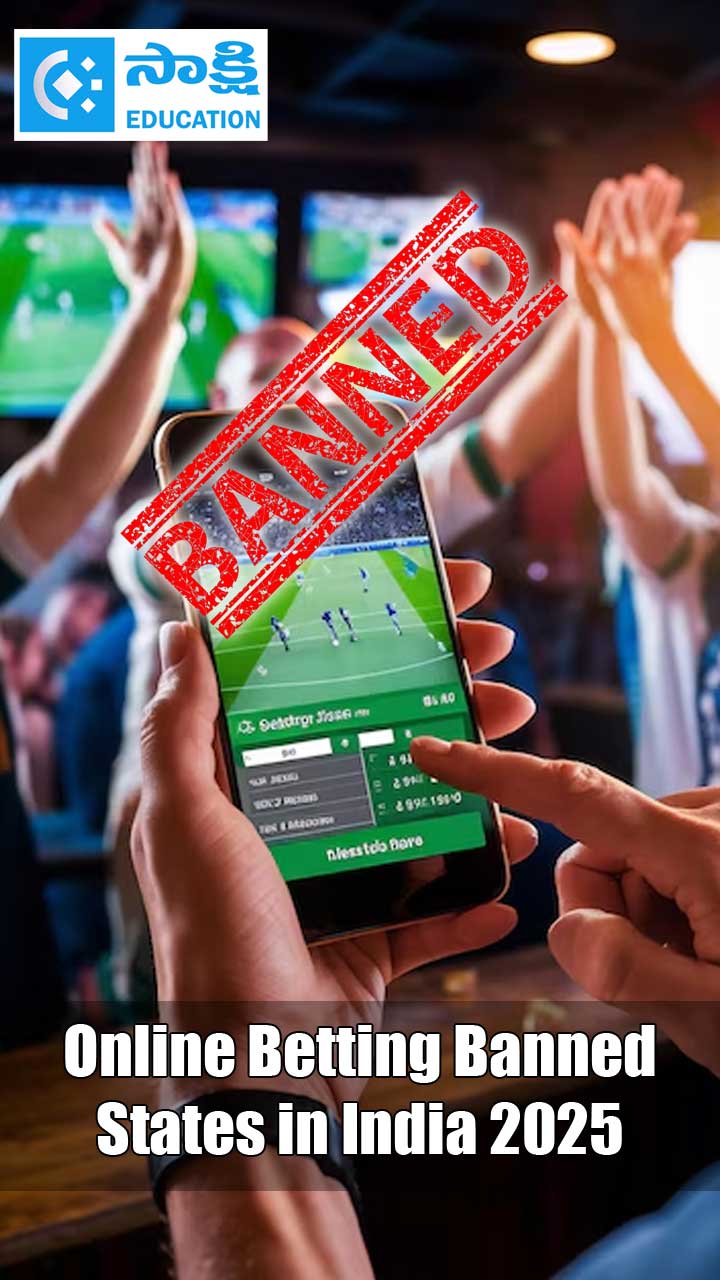Indo-French Relations
Sakshi Education
Introduction:
- Improvement in Indo-French Relations: There has been a marked improvement in Indo-French relations after years of neglect, which saw a stagnation of trade, the limited French interest in the Indian market, and the French interest in arms sale to Pakistan.
- Reasons for Improvement in Indo-French Relations:
- Common Strategic Interests: India and France share many common strategic interests and concerns.
- Political Autonomy: Both have strong traditions of political autonomy.
- Multipolarity: Both have a stake in promoting multipolarity in international relations. Both the countries favour a more equitable international system, in line with new demographic, economic and geo-political realities. France wants Europe to be one of the poles in the new order and India another.
- Nuclear Issue - Bilateral Agreement on Civilian Nuclear Cooperation Signed: France has shown a better understanding of the underlying reasons for India’s nuclear tests. India and France signed a bilateral agreement on civilian nuclear cooperation in September 2008. French help in talks with the Nuclear Suppliers Group (NSG) were crucial in seeking changes to the rules governing exports of nuclear goods within the NSG.
- Defence Cooperation - Uninterrupted Sales and Maintenance Since 1950s: The Indo-French defence cooperation goes back to the 1950’s with uninterrupted sales and maintenance despite India's 1998 nuclear tests. The French Mirage-2000 aircraft plays a strategic role in the Indian defence plans. Currently, India and France are engaged in increasing the military cooperation in many fields.
- France Backs UN Security Council Membership for India: France has backed India’s claim to permanent membership in an expanded UN Security Council. It is the third permanent member of the Security Council - after Russia and Britain- to publicly back India's claim.
- France Wants to Develop a General Relationship with India in Two Key Areas: French Foreign Minister Bernard Kouchner who visited India in December 2007 stated that France would like to develop a general relationship with India in the following two key areas:
- Stronger Cooperation in the Key Areas of Future: Academic exchanges, scientific and technical cooperation in high technology, and industrial cooperation through the development of direct investment.
- Development of Concertation with India on Global Issues that Require a Collective Response: The combat against global warming and emerging diseases, and world economic and financial regulation. In this regard, the suggestion of France to enlarge the Group of 8 (G-8) to G- 13 to include India, China, Brazil, South Africa and Mexico is significant for India.
- Issues where India and France Differ:
- A. Iran:
- France is opposed to Iran obtaining nuclear weapons and sees Iran as a threat. It has maintained that since Iran was not complying with its international obligations, France would continue, along with its partners, to examine further binding measures within the framework of the UN.
- India's decision to re-engage with Iran and the remarks of the then Indian Foreign Secretary Shivshankar Menon describing Iran as a factor of stability and security in the region would not be agreeable to the France.
- B. Myanmar - France Feels India's Attitude Towards the Military Regime in Myanmar is Soft: Analysts point out that France is of the opinion that India's attitude towards the military regime in Myanmar is soft. It wants India to take a tougher stand, even support the demand for sanctions against the military regime in Myanmar.
- C. Supply Arms by France to Pakistan: Despite the political turmoil in Pakistan, France decided not to place an embargo on arms sales to Pakistan.
- D. India does not want Further Hardening of the Immigration Laws in France: India looks at immigration and the free movement of people as an important issue and does not want the further hardening of the immigration laws in France.
- A. Iran:
- French Assistance during Wars: During the UN embargo on arms supplies to India in 1965 following the Pakistani attack, France under the leadership of General De Gaulle came to India’s assistance. During the Bangladesh war also the French attitude was sympathetic.
- Cooperation in the Field of Nuclear Energy: There has been a long period of Indo-French cooperation in the field of nuclear energy and space technology. France replaced the US as the supplier of low enriched uranium for Tarapur reactor. The arrangement continued till the 90’s when the France joined the NPT.
- Foreign Policy of France: Analysts feel that France has been conducting three foreign policies- a) as part of the Western alliance, b) in exercise of its own independence and c) to subserve its commercial interests. India has experienced all the three foreign policies of France.
- Indo-French Strategic Dialogue:
- Proposal Formalised in 1988: The decision for a strategic dialogue was taken in January 1998, during the French President’s visit to India. The proposal was formalised during the former Prime Minister Atal Behari Vajpayee’s visit to France in 1998.
- Issues Covered by the Dialogue: The Indo-French Strategic Dialogue covers a wide range of issues including the strategic balance in South Asia and the Indian Ocean, India’s relations with China and Pakistan, India’s nuclear doctrine, the progress in the unification of European Union, and NATO and its doctrine.
- Significance of the Strategic Dialogue:
- Global Role for India: Analysts feel that the on-going strategic dialogue between India and France will lead to the identification of common global approach and to persuade Russia to share it. This is a right step towards ending the unipolar world dispensation and establishing genuine multipolarity. This will give India a meaningful global role in the changing international politics.
- Adds Balance to India’s Nuclear Dialogue with the US: Defence analysts feel that the strategic dialogue with France also adds some balance to the on-going Indo-US nuclear dialogue. A nuclear dialogue with France can give a boost to India’s post-Pokhran diplomacy.
- Transfer of Advanced Technology: According to analysts India and France are trying to arrive at a formulation which will allow the transfer of advanced technology, including civilian nuclear know- how, to India against India’s assured compliance to important non-proliferation rules.
- Indo-French Defence Cooperation: The blueprint for Indo-French defence cooperation was established in 1988. The idea was to start a strategic dialogue, project the country’s defence needs and increase cooperation both in terms of direct contacts between the armed forces and technological and scientific collaboration. However, France’s decision to sell Mirage jets to Pakistan stalled the project and for seven years defence cooperation between India and France was low. Interests again revived with the setting up of the High Committee on Defence.
- French President's Visit to India (January 25-26, 2008):
- French President Nicolas Sarkozy Chief Guest at the Republic Day Parade
- Visit Focussed on Three Main Domains - Strategic Partnership, Economic Ties and Student Exchange
- Defence Cooperation to Go Beyond Buyer-Seller Relationship
- Bilateral Pact on Cooperation in Civil Nuclear Energy Finalised, to be Signed After India gets Special Exemption from the NSG
- France Supports India's Bid for a Permanent Membership of the UN Security Council
- Cooperation between the Intelligence Agencies to Combat Terrorism
- Five Agreements Including Cooperation in Nuclear Research Signed
- Intensifying Exchange of Nuclear Scientists
- Agreement for Mutual Protection of Classified Information Signed
- Bilateral Trade Target of 12 Billion Euros by 2012 Set
- French President Backs India's Entry into the G-8
- Prime Minister Manmohan Singh’s Visit to France (September 2008):
- India, France Sign Nuclear Agreement (September 30, 2008):
- France the First Country to Enter into an Agreement with India after the NSG Waiver: During Prime Minister Manmohan Singh's visit to France, India and France signed an agreement on civil nuclear cooperation on September 30, 2008. France was the first country to sign a civil nuclear cooperation agreement with India after the NSG agreed to lift sanctions on India's nuclear trade.
- The Agreement called "Cooperation Agreement Between the Government of the Republic of India and the Government of the French Republic on the Development of Peaceful Uses of Nuclear Energy," was signed by India's Atomic Energy Commission Chairman Anil Kakodkar and the French Foreign Minister Bernard Kouchner in the presence of India's Prime Minister Manmohan Singh and French President Nicolas Sarkozy.
- The Agreement opens the way for India to do business with France in nuclear reactors, nuclear fuel supply, nuclear safety, radiation and environment protection and nuclear fuel cycle management.
- The Agreement added a new dimension to Indo-France strategic partnership, according to Prime Minister Manmohan Singh.
- Indo-French civil nuclear cooperation has a long history which includes the fast breeder test reactor at Kalpakkam near Chennai, the heavy water production facilities at Vadodara, and the supply of enriched uranium for the Tarapur nuclear plat after the Pokhran nuclear test in 1974.
- The Agreement was contextualised in the global need to find non-polluting energy sources in order to combat climate change.
- As responsible States with advanced nuclear technologies, including in the nuclear fuel cycle, both India and France are committed to the highest standards of safety and security and in accordance with their respective nuclear policies and international obligations, according to a background note.
- The two countries also reaffirmed their common concerns and objectives in the field of non- proliferation of weapons of mass destruction and their means of delivery including a view of possible linkages to terrorism.
- India and France would soon hammer out commercial agreements to operationalise the nuclear agreement, according to Dr. Kakodkar.
- In December 2008 French company Areva signed an agreement with the Nuclear Power Corporation of India Limited (NPCIL) for supply of 300 tonnes of uranium to the nuclear plants of India which were running ARTICLE FOR SAKSHI UAI’S STUDY MATERIAL 2009 at 45 per cent of their capacity. The contract came as a follow-up of the nuclear cooperation agreement signed between India and France in September 2008.
- India, France Sign Nuclear Agreement (September 30, 2008):
- France invited India’s Prime Minister Manmohan Singh to be Chief Guest at its National Day celebrations on July 14, 2009. The invitation by French President Nicolas Sarkozy sought to reciprocate India’s gesture of making the French President Chief Guest at the Republic Day celebrations in 2008.
- Indian Armed Forces Invited to Take Part in the Parade:
- 400 Indian Armed Services personnel from the three wings took part in the French National Day parade on July 14, 2009.
- The Maratha Light Infantry led the parade followed Navy and Air Force units accompanied by their own bands.
- French President Paid Tribute to India:
- French President Nicolas Sarkozy paid tribute to India saying that he was privileged to welcome Prime Minister Manmohan Singh.
- Indian Prime Minister was the Guest of Honour at the Bastille Day parade to mark the 220th anniversary of the French Revolution.
- Mr. Sarkozy pointed out that India was a major force in the 21st century which would fully realise its great power potential.
- Indian Prime Minister’s Address:
- Prime Minister Manmohan Singh called for further strengthening the strategic partnership that had developed between India and France since 1998.
- It was a rare privilege and a great honour for India’s Armed Forces to be invited to take part in the grand spectacle that is the July 14 parade, according to Dr. Singh.
- India’s freedom struggle took inspiration from the French Revolution and guided the founding fathers of India’s Constitution, according to the Prime Minister. Recalling the 1789 French Revolution, Dr. Singh pointed out that 220 years ago, the great city of Paris saw the emergence of a powerful voice, the universal recognition of the ideals of Liberty, Equality and Fraternity. These ideals changed the course of history.
- Issues Discussed during the Meeting of the Two Leaders:
- Fight against terrorism
- Situation in Pakistan, Afghanistan, Iran, Iraq, West Asia and the Gulf
- Furthering Cooperation in the Defence and Nuclear sectors
- French firm Areva is close to finalising agreements with Nuclear Power Corporation of India Limited.
- France hopes to sell the Rafale fighter planes to India.
- The G-8 line to raise the bar on transfer of enrichment and reprocessing technologies (ENR) to countries that do not have it would have no bearing on France’s nuclear trade with India.
- Invitation to the Indian Prime Minister to be the Chief Guest for the National Day Parade Points to the Strengthening of the Indo-French Strategic Partnership: Analysts in France felt that the decision to invite Indian Prime Minister Manmohan Singh to be the Chief Guest for the National Day parade pointed to the strengthening of the strategic partnership between India and France.
- Growing Bilateral Ties:
- France backed India at the Nuclear Suppliers Group (NSG) and the International Atomic Energy Association (IAEA) meetings in 2008 that ended India’s isolation from the civil nuclear mainstream.
- France is one of the few countries, apart from the US and Russia, with whom India has signed a nuclear cooperation agreement.
- India and France continue to hold joint naval exercises and France was selected as the Indian Air Force’s first partner for joint fighter level exercises in 2003.
- Trade, cultural and people-to-people contacts are being worked on by both sides.
- France is India’s third largest supplier of defence equipment and has maintained it as a reliable partner.
- Significance of the Indo-French Agreement on Cooperation in Civil Nuclear Energy:
- Interest in Participating in India's Civil Nuclear Programme Not Limited to the US: The signing of the Indo-French Agreement on cooperation in civil nuclear energy reflects that interest in participating in India's civil nuclear energy programme is not limited to the US only. India need not depend entirely on the US for nuclear fuel and reactor supplies as and when it is able to import both for its civil nuclear programme, according to analysts.
- There is more to Civil Nuclear Cooperation than the Supply of Fuel or Transfer of Technology: The Agreement brings out the fact that there is more to civil nuclear cooperation than mere supply of fuel or transfer of nuclear technology. India and France have additional cooperation in the civil nuclear energy sector in the form of Indo-French Joint Committee on Atomic Energy along with an ongoing dialogue between the nuclear safety authorities of the two countries.
- Strengthens India's Position as a Non-Proliferating Nuclear Power: Analysts point out that the civil nuclear agreement strengthens India's position as a non-proliferating nuclear power. The French President Nicolas Sarkozy complimented India on its non-proliferation record and noted its moratorium on further nuclear weapon testing.
- Indo-French Relations Need to Rest on Three Pillars - Academic Exchanges, High Technology Cooperation and Industrial Cooperation: The then Union Commerce and Industry Minister Kamal Nath pointed out that Indo-French relations need to rest on three pillars - academic exchanges, scientific and technical cooperation in high technology, and industrial cooperation through the development of direct investment.
Published date : 14 Dec 2009 03:11PM













